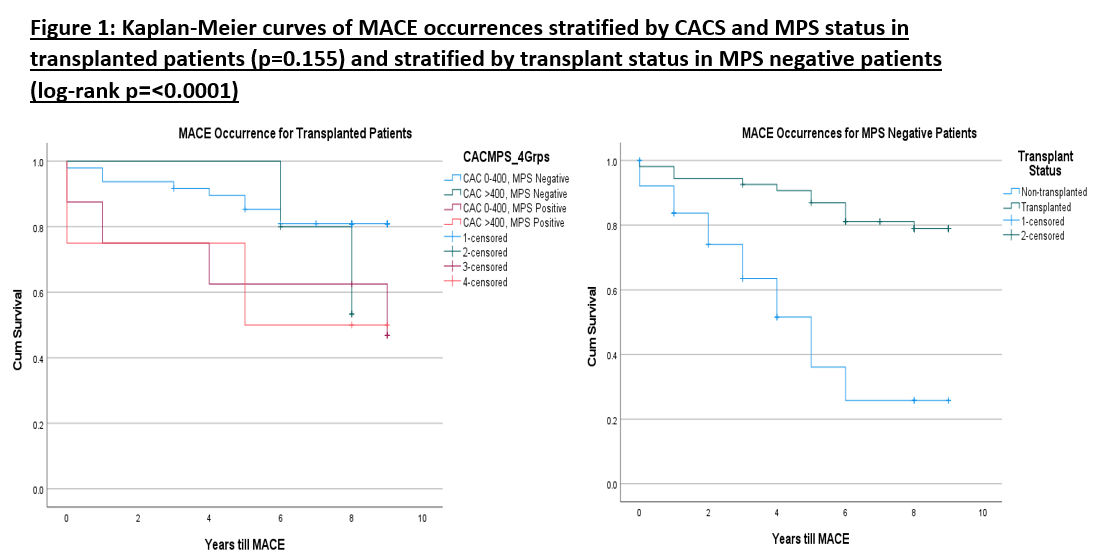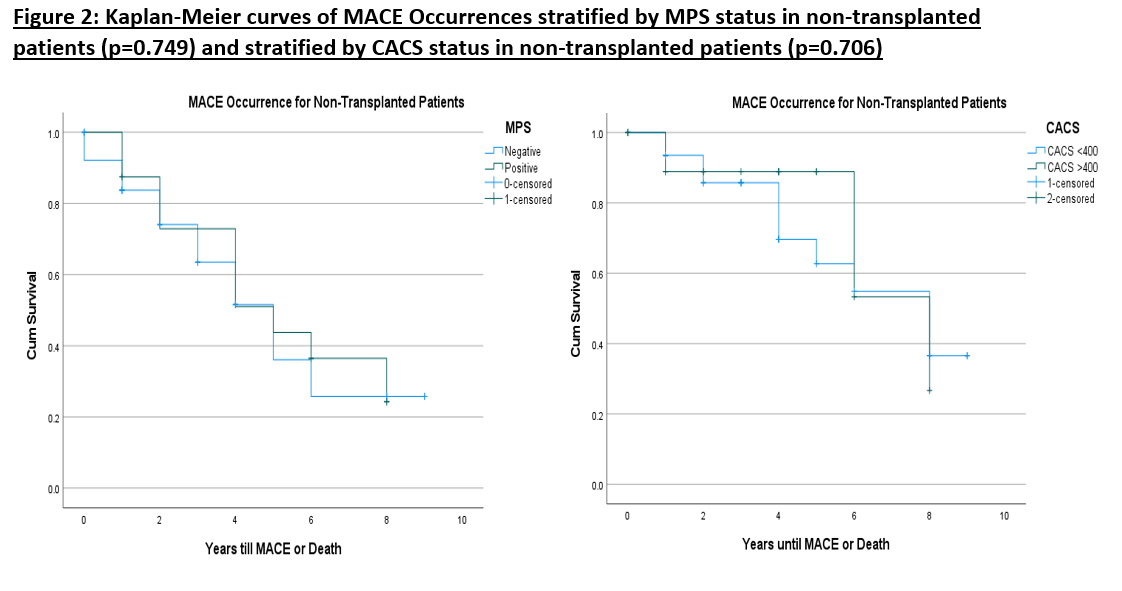Less is More. Extensive Cardiac Investigations Add Little Value in Waitlisting Patients for Kidney Transplantation
B. Chow1, M. Khurram2, E. Capuano2, F. Pugliese2, M. Yaqoob2, I. Mohamed2
1Barts and the London School of Medicine and Dentistry, London, United Kingdom, 2Department of Renal and Transplantation, Royal London Hospital, Bart's Health NHS Trust, London, United Kingdom
Meeting: 2022 American Transplant Congress
Abstract number: 26
Keywords: Echocardiography, Kidney transplantation, Mortality, Waiting lists
Topic: Clinical Science » Kidney » 35 - Kidney: Cardiovascular and Metabolic Complications
Session Information
Session Name: Kidney: Cardiovascular and Metabolic Complications I
Session Type: Rapid Fire Oral Abstract
Date: Sunday, June 5, 2022
Session Time: 3:30pm-5:00pm
 Presentation Time: 4:00pm-4:10pm
Presentation Time: 4:00pm-4:10pm
Location: Hynes Veterans Auditorium
*Purpose: Extensive cardiac investigations have long been considered necessary to aid decision-making in waitlisting for kidney transplantation. However, the utility and reliability of such comprehensive tests are not well established. This study assessed the prognostic power of coronary artery calcium scoring (CACS) using computed tomography coronary angiogram (CTCA) and myocardial perfusion scintigraphy (MPS) in predicting major adverse cardiac events (MACE).
*Methods: We conducted a retrospective study of all ESRD patients considered for kidney transplantation and referred for MPS and/or CTCA for CACS between October 2012 to March 2014 and assessed MACE (heart failure, cardiac arrest, myocardial infarction, angina, CVA, PVD and transient ischaemic attack) within a 9-year follow-up period.
*Results: Among 131 patients in our study, 91.6% had a MPS and 92.4% had a CTCA with 9-years follow-up. Of the 120 patients who had a MPS scan, 76.7% had a negative MPS result and 23.3% had a positive MPS result. Of the 121 patients who had a CTCA, 75.2% had CACS <400 (low score) while 24.8% had CACS >400 (high score). Sensitivity, specificity, positive and negative predictive values were poor for both CTCA (38.8%, 84.7% 63.3%, 67.0%) and MPS (34.8%, 82.4%, 55.2%, 67.0%). There was no statistical significance in MACE when stratified by CACS and MPS results in transplanted patients (log-rank p= 0.155); statistical significance was observed when stratified by transplant status in MPS negative patients (p=<0.0001)(Figure 1). No statistical difference in MACE when stratified by MPS status (p=0.749) or CACS status (p=0.706) in non-transplanted patients was observed (Figure 2).
*Conclusions: This challenges the value of extensive cardiac assessments (MPS, CTCA) in predicting MACE. Candidates conventionally considered low-risk by these methods had similar risk of MACE when transplanted against higher risk groups. Transplantation confers an advantage in MACE-free years. Thus, such tests are best used for risk stratification and counselling for shared decision-making.
To cite this abstract in AMA style:
Chow B, Khurram M, Capuano E, Pugliese F, Yaqoob M, Mohamed I. Less is More. Extensive Cardiac Investigations Add Little Value in Waitlisting Patients for Kidney Transplantation [abstract]. Am J Transplant. 2022; 22 (suppl 3). https://atcmeetingabstracts.com/abstract/less-is-more-extensive-cardiac-investigations-add-little-value-in-waitlisting-patients-for-kidney-transplantation/. Accessed February 27, 2026.« Back to 2022 American Transplant Congress


